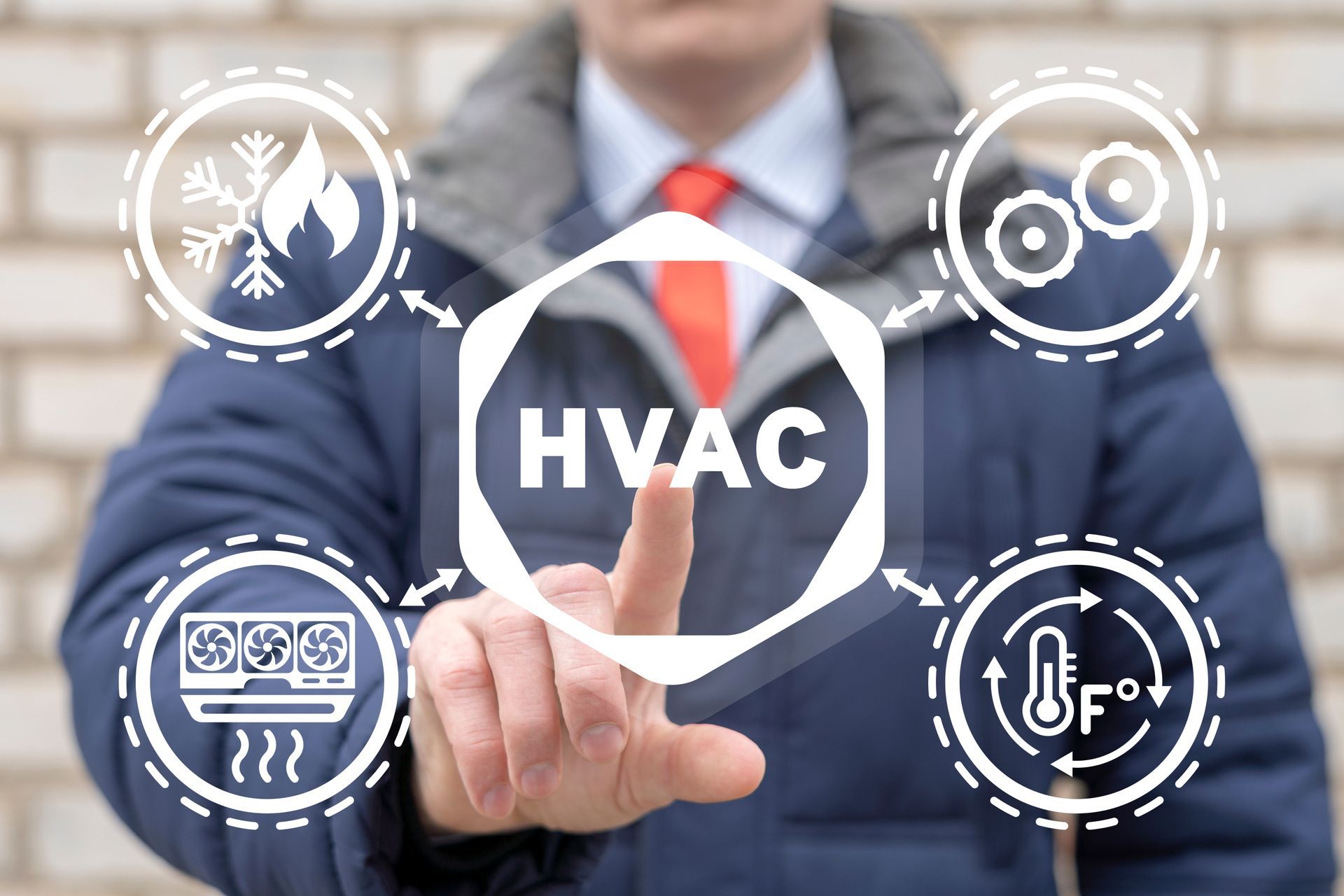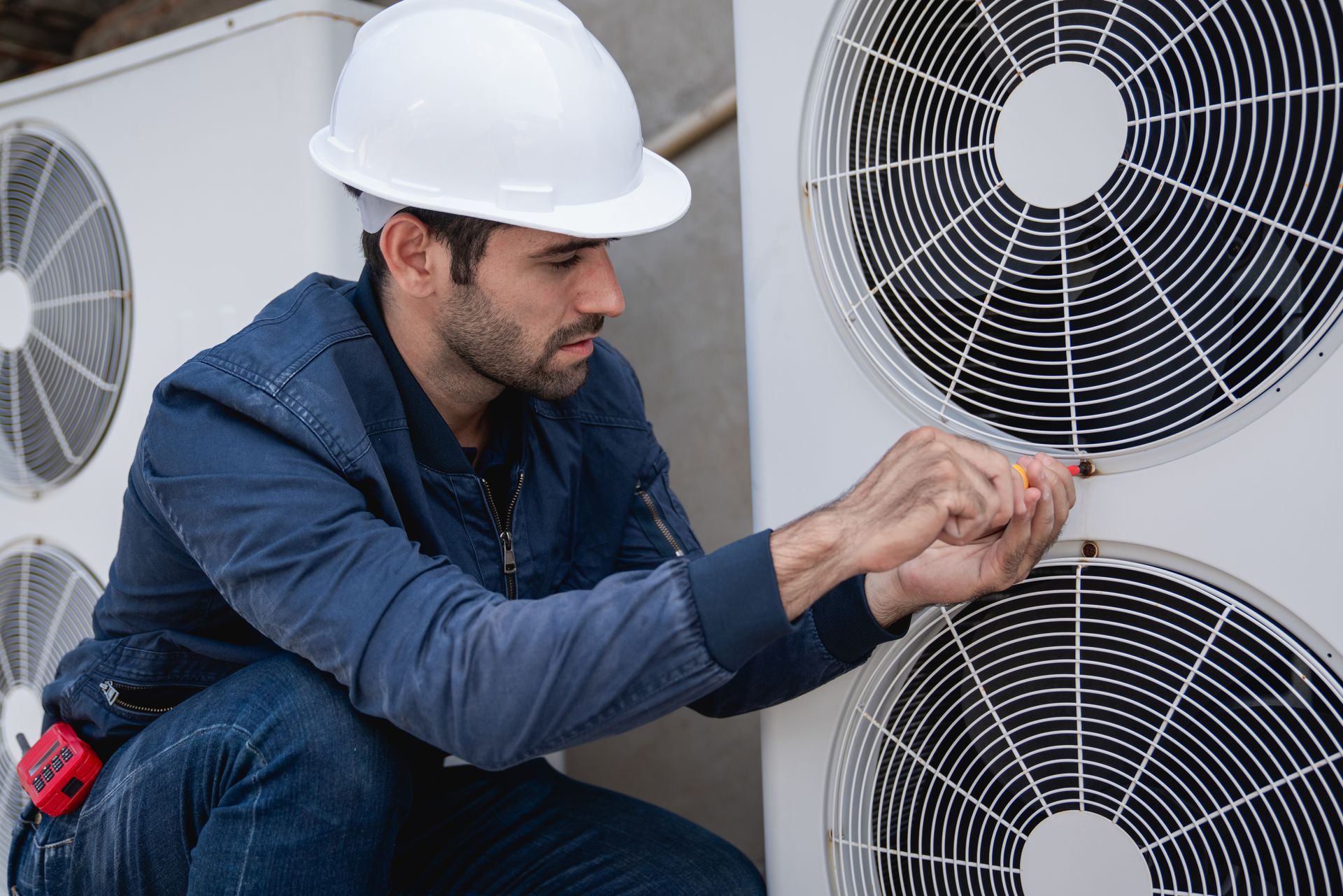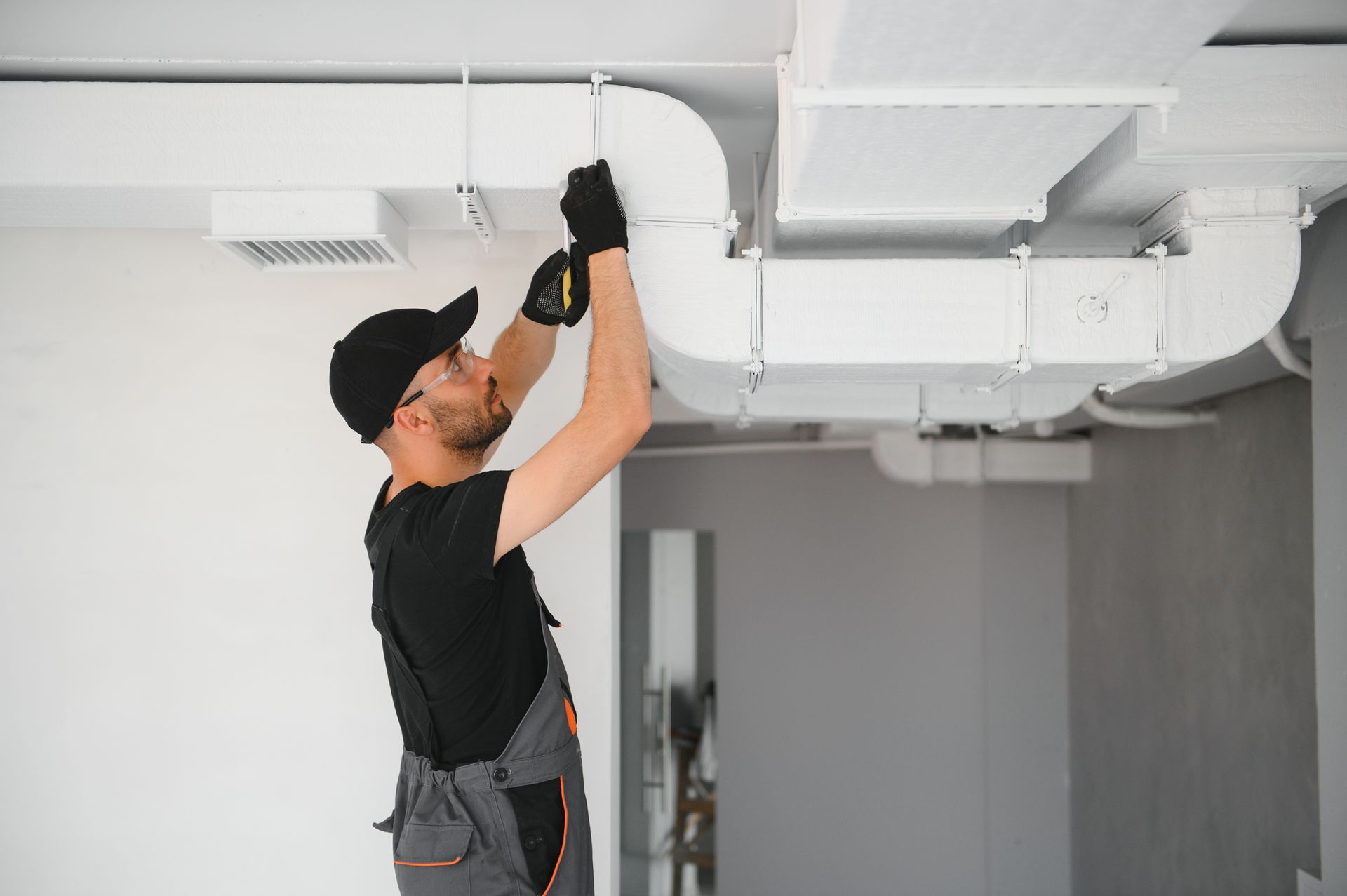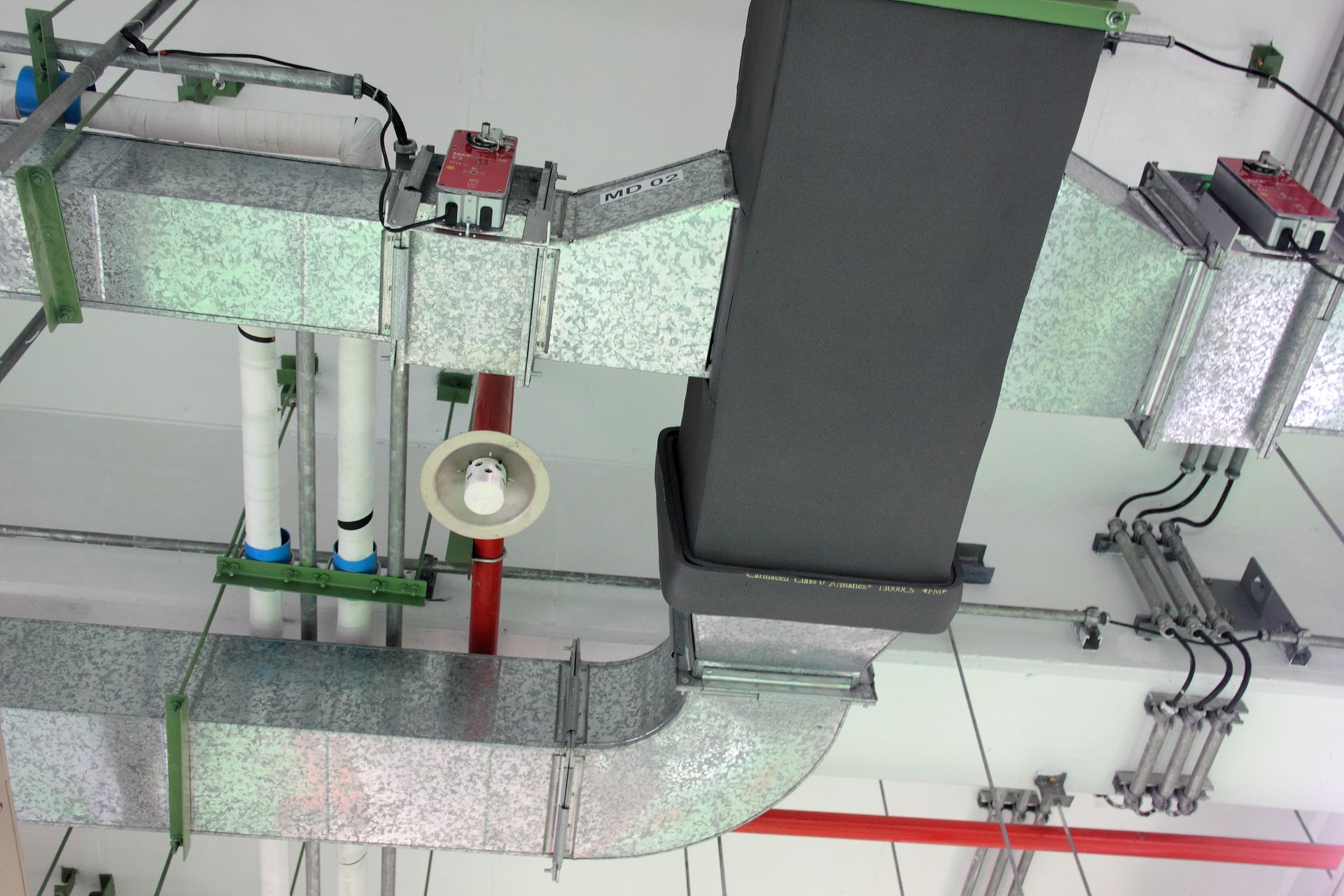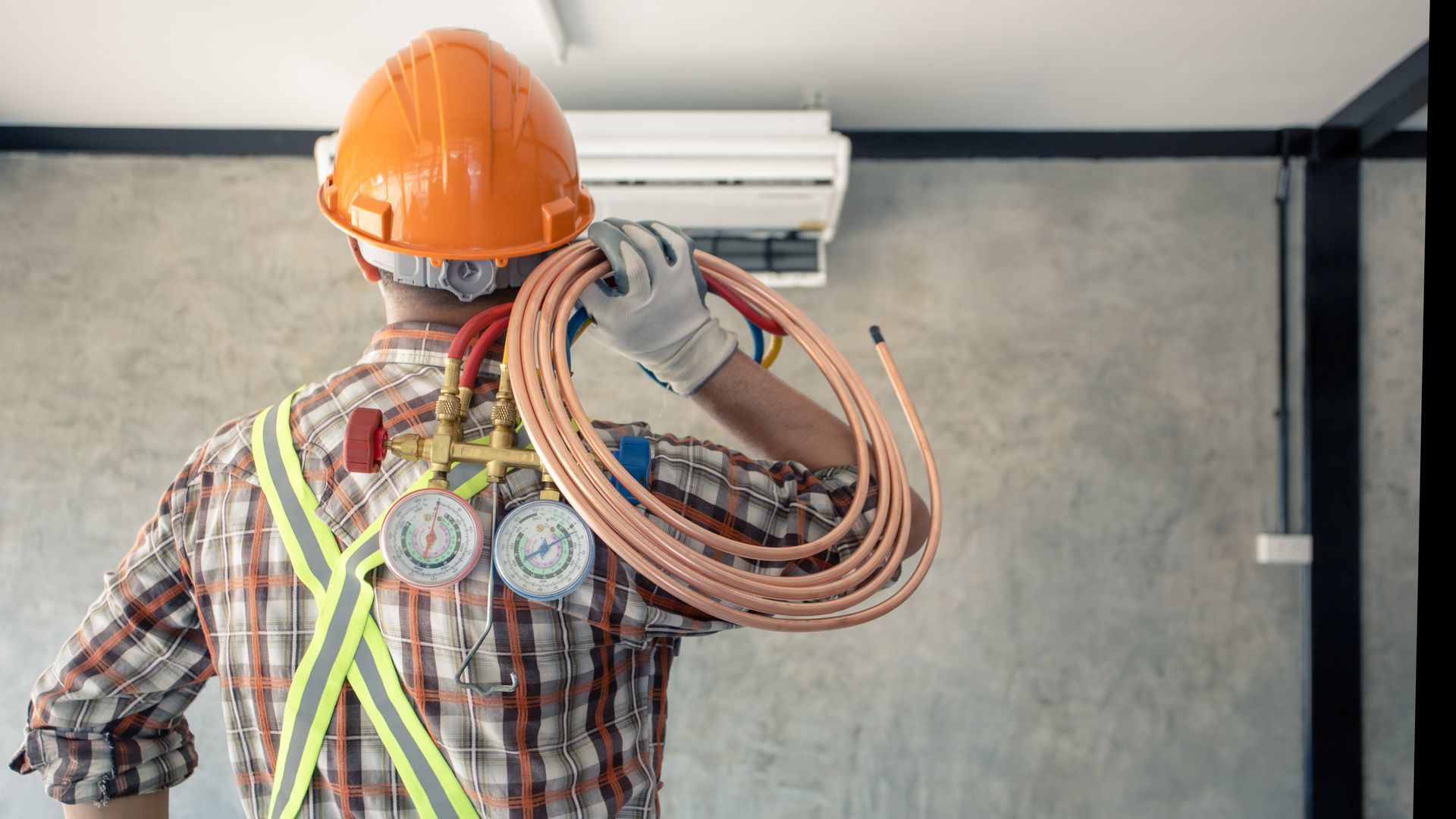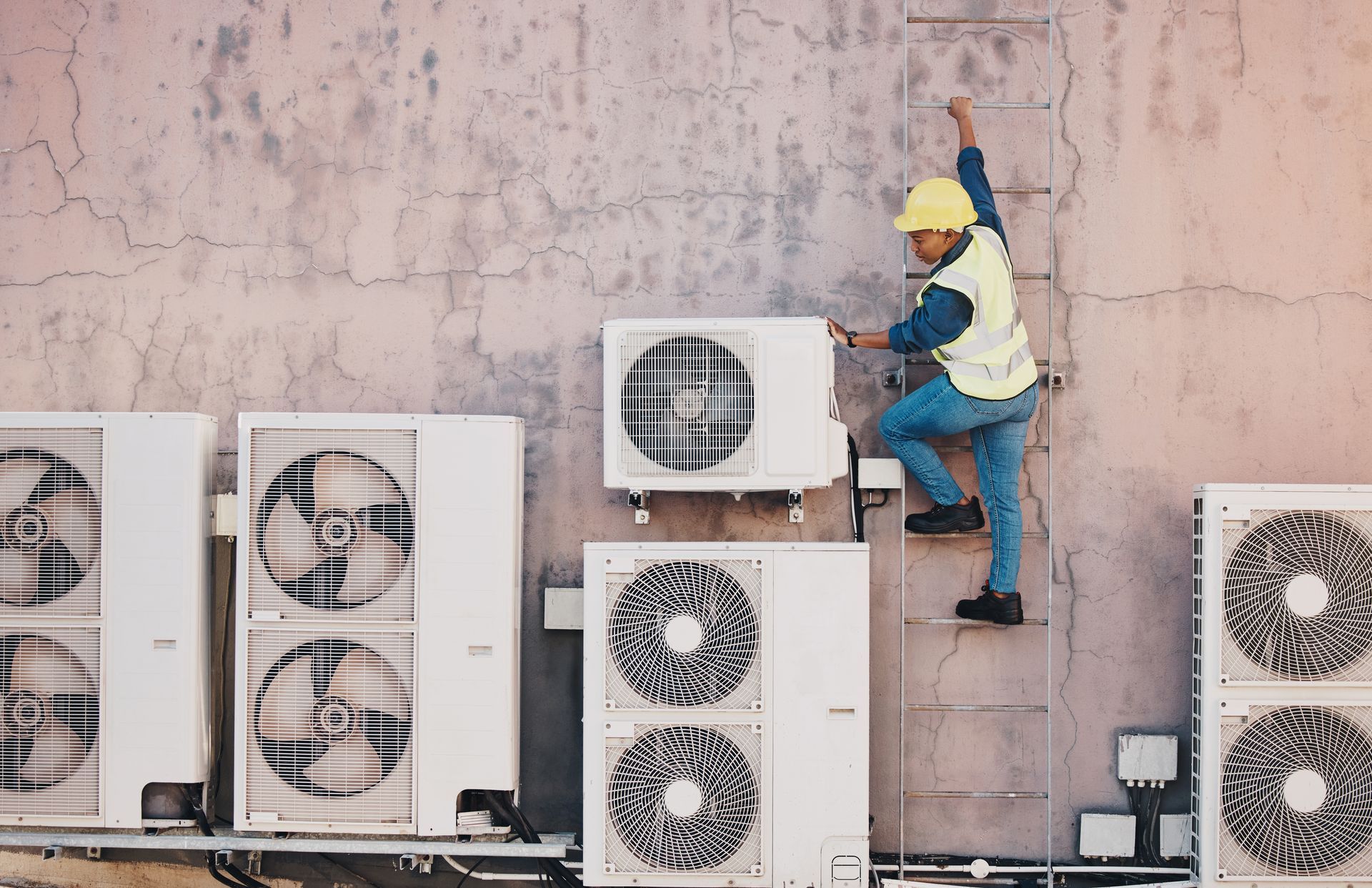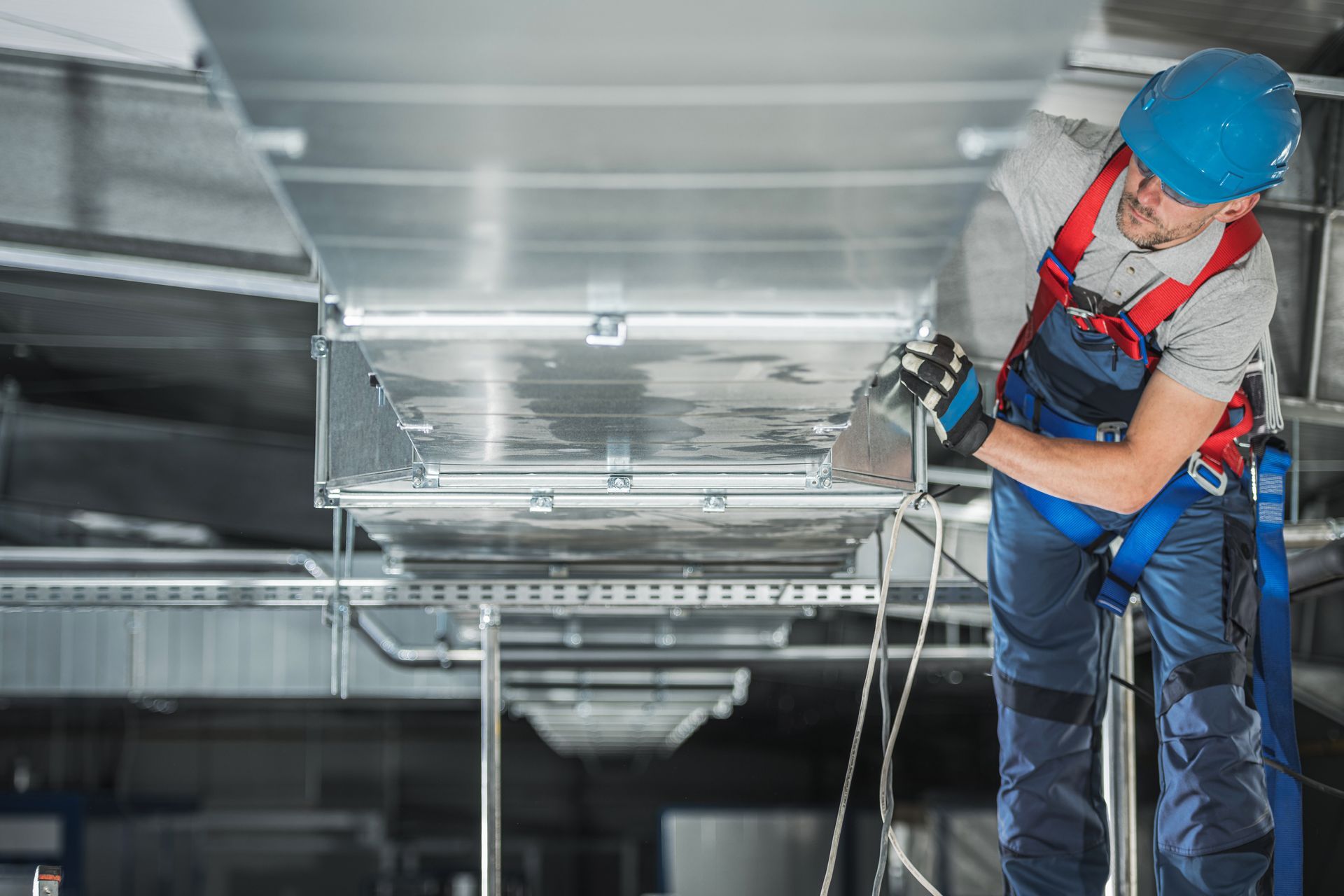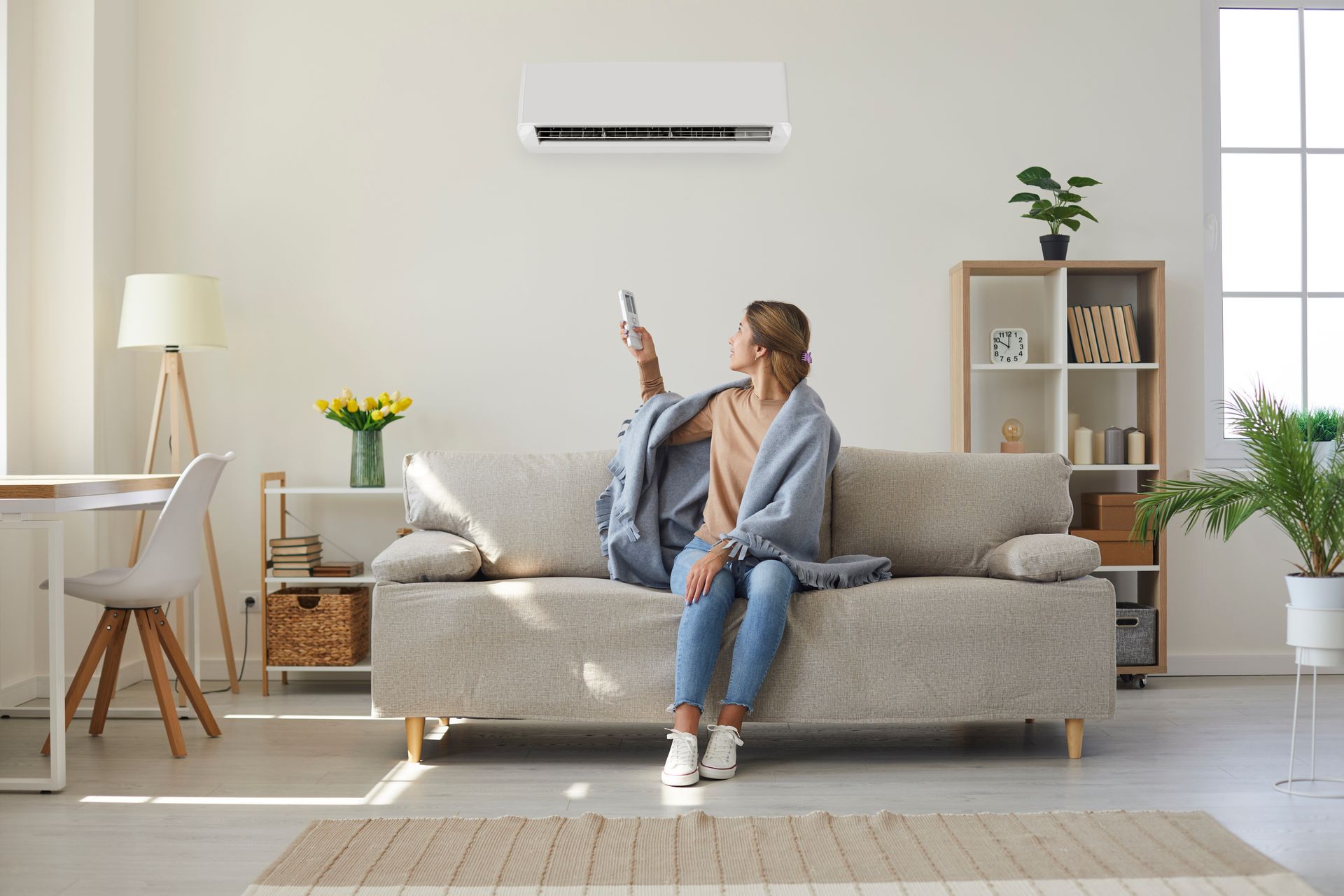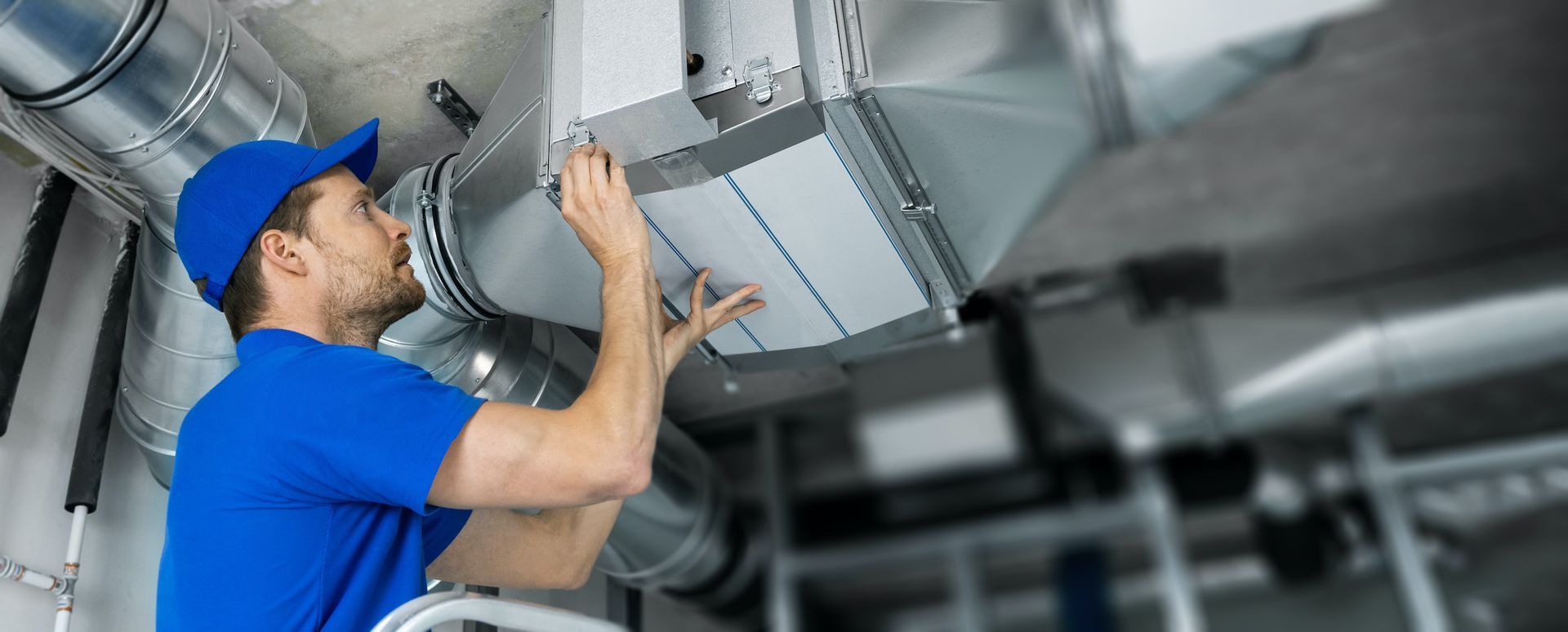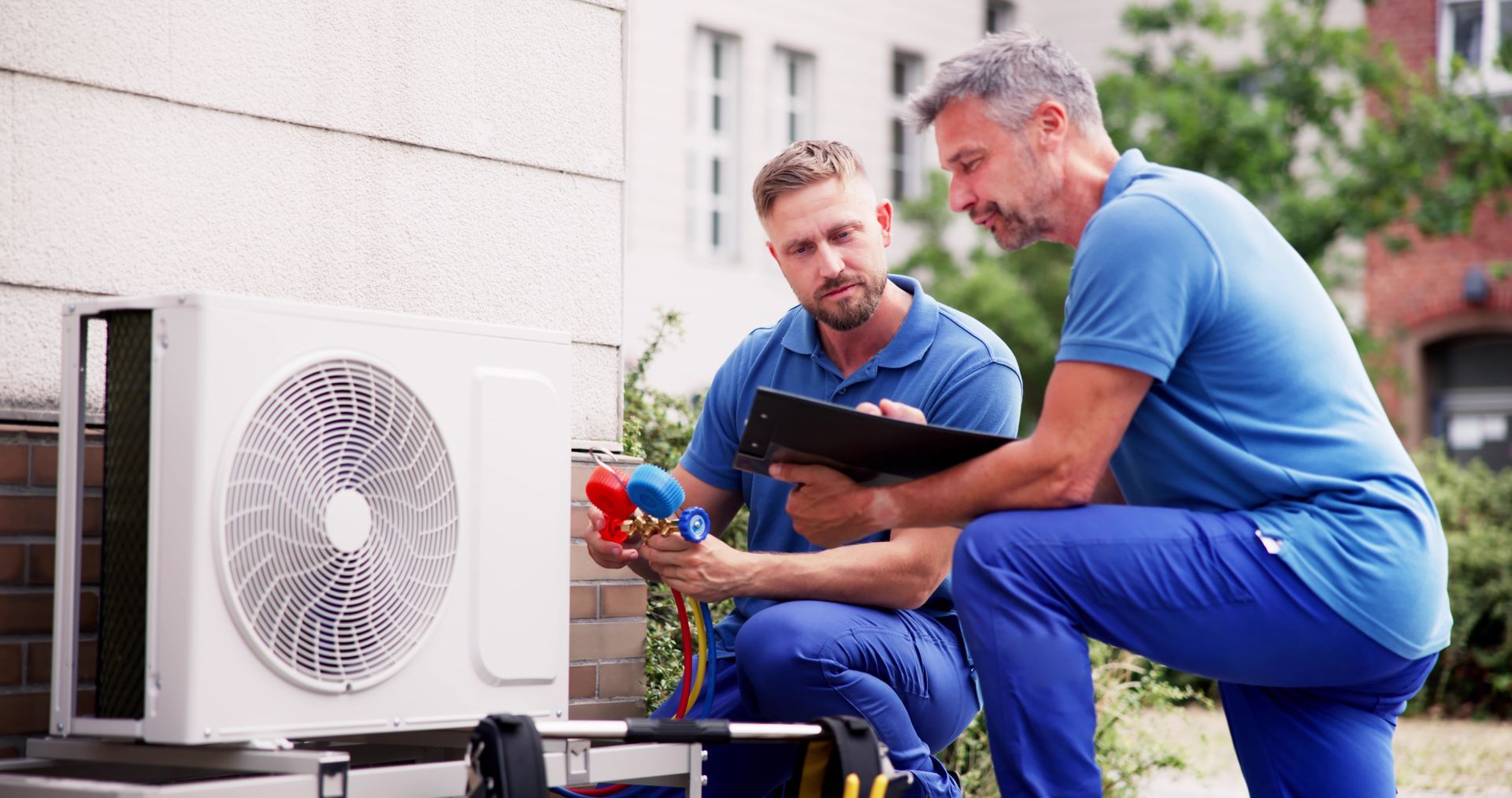Follow Us
Contact Us
Send Message
Ipad Contact Form
We will get back to you as soon as possible
Please try again later

From Climate Control to Water Pools: Handling Leaks in Business HVAC Systems
HVAC systems are the lifeblood of modern businesses throughout the Pioneer Valley, ensuring that workspaces remain conducive for employees and inviting for visitors. With climate control paramount in today’s commercial spaces, an efficient HVAC system can optimize productivity, save on energy costs, and ensure a pleasant environment. However, like all machinery, HVAC systems aren't immune to issues. One of the most common challenges businesses face is the sudden appearance of puddles or leaks from their HVAC units. Such disruptions can be more than just inconveniences—they can signal bigger problems.
Water leaks from HVAC systems in commercial spaces can cause structural damage, increase operational costs, and even pose health risks due to mold growth. But, what causes these leaks, and more importantly, how can they be addressed? Let’s delve deeper.
Understanding the Causes
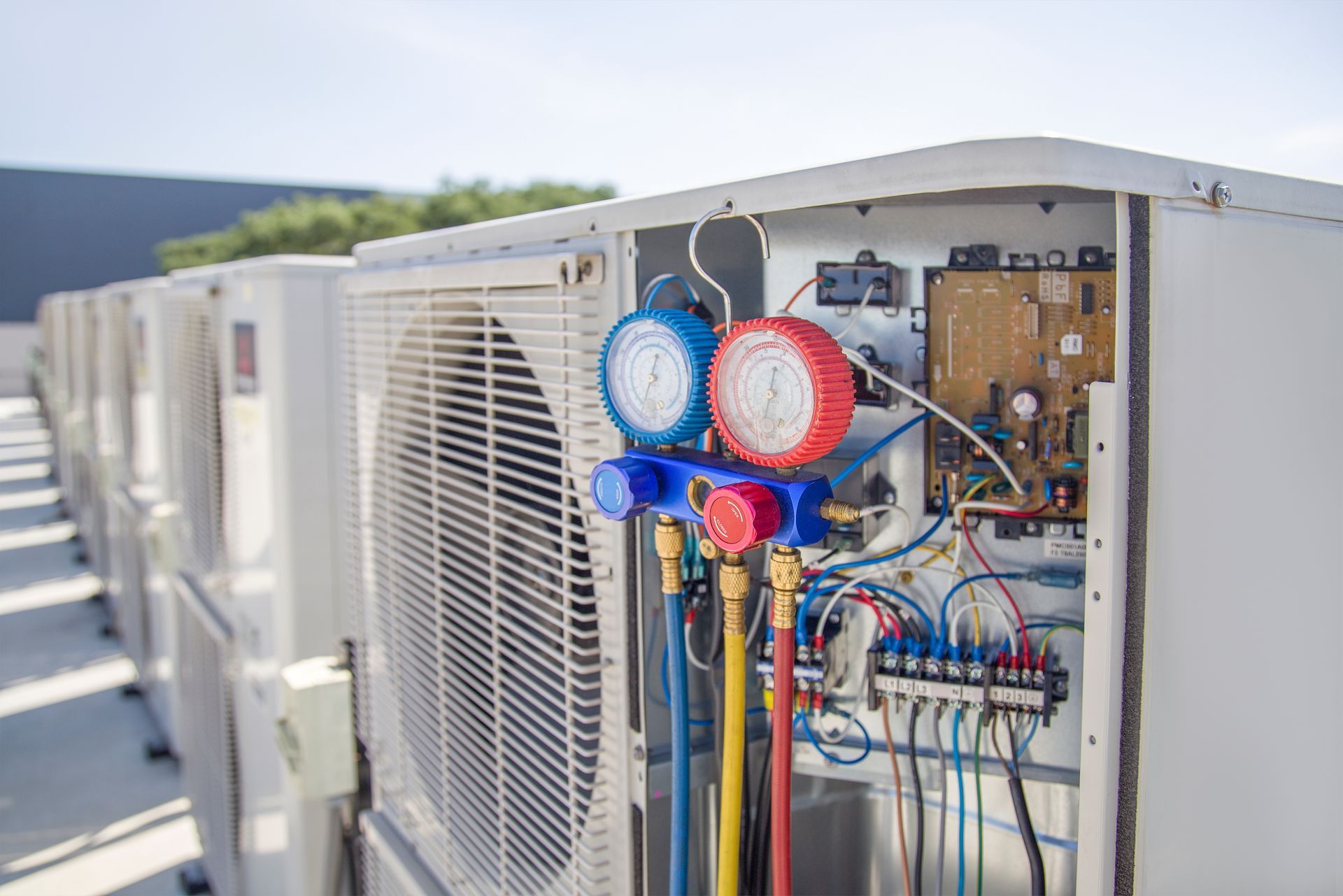
When a puddle forms beneath your commercial HVAC system, it's more than just an unsightly mess—it's a symptom of an underlying issue. The intricacy of HVAC systems means there could be several potential culprits for the water leakage. Addressing the root of the problem is pivotal, not only to halt the current leak but to preempt future ones. To truly tackle this issue head-on, it's important to understand the most common causes:
1. Drain Pan and Line Issues:
The drain pan and line play a crucial role in an HVAC system, especially in the condensation process. Here's how they function: As your HVAC operates, it produces condensation. This condensation drips into a drain pan, which then funnels it away through the drain line, ensuring that water doesn’t accumulate and overflow.
However, a few things can go wrong with this setup:
- Pan Damage: Over time, the metal of the drain pan can corrode, leading to small holes or cracks. Even minor damage can result in water leakage. Given the constant exposure to water, rust and wear are common culprits.
- Line Blockage: The drain line can become clogged due to a buildup of dirt, mold, or even algae, especially if regular maintenance isn't conducted. A blocked line means the water has nowhere to go, causing the pan to overflow.
- Improper Installation: Sometimes, the issue stems from the very beginning—if the drain pan or line is improperly installed, it might not efficiently handle the water runoff, leading to persistent leaks.
For businesses, a malfunctioning drain pan or line not only disrupts daily operations but could lead to bigger concerns. A small leak might seem harmless, but if unchecked, it could cause significant water damage, especially in crucial areas like server rooms or storage facilities.
2. Frozen Evaporator Coils:
The evaporator coil is a fundamental component in the HVAC system's cooling process. When your system is in cooling mode, these coils contain refrigerant that absorbs heat from the air, effectively cooling it down. As this process unfolds, it's natural for condensation to form on the coils, just as droplets form on a cold glass on a hot day. Normally, this condensation drips into the drain pan and is safely funneled away, but issues arise when the coils freeze.
Several factors can lead to the freezing of these coils:
- Insufficient Airflow: If air isn't flowing correctly across the evaporator coil, it can't aid in keeping the coil's temperature above freezing. Dirty air filters, malfunctioning fans, or blocked vents can restrict this crucial airflow.
- Low Refrigerant Levels: The refrigerant's primary role is to absorb heat. When there's not enough of it, the coils can get excessively cold, leading to freezing. A refrigerant leak is often the cause of reduced levels, and this not only affects the HVAC's efficiency but also poses environmental concerns.
- Malfunctioning Thermostats: An inaccurate thermostat reading or malfunction can cause the system to run longer than necessary, leading the coils to freeze due to extended exposure to moisture.
Frozen coils are more than just an operational concern. When the ice on the coils melts, it produces more water than the drain pan can handle, leading to overflow and potential water damage. Moreover, consistently frozen coils can damage the compressor—one of the most expensive components to replace in an HVAC system.
3. Dirty Air Filters:
Air filters are the unsung heroes of the HVAC system. Tasked with trapping dust, pollen, and other particulates, they ensure the air circulating within a commercial space remains clean and healthy. But their significance goes beyond just purifying air—they play a direct role in the system's overall performance, especially in preventing water leaks.
Let’s delve into the challenges posed by dirty or clogged air filters:
- Restricted Airflow: At its core, the air filter's job is to let air pass while trapping contaminants. However, as filters become saturated with debris, they can significantly impede the airflow. This restricted airflow can then prevent the necessary amount of air from reaching the evaporator coils. Without sufficient air passing over them, these coils can get too cold and eventually freeze, setting the stage for subsequent water leaks when they defrost.
- Decreased System Efficiency: Clogged filters make the HVAC system work harder. This not only increases energy consumption (and hence operational costs) but can also cause the system to overheat. While this may not directly cause water leaks, an overheated system can lead to other malfunctions that might.
- Compromised Indoor Air Quality: Dirty filters fail to effectively trap pollutants. This not only reduces the air quality within the commercial space but can also lead to the buildup of contaminants within the HVAC system itself. Such buildup can result in mold growth within the ducts or even around the drain pan, leading to potential blockages and subsequent water leaks.
It's worth noting that maintaining clean air filters is one of the simplest yet most impactful preventive measures a business can take. Regularly replacing or cleaning filters not only ensures a healthier environment but also safeguards the integrity and longevity of the HVAC system.
4. Low Refrigerant:
Refrigerant is the lifeblood of any HVAC system, responsible for the critical process of absorbing and releasing heat, thus providing the desired climate control within a commercial space. When the refrigerant level drops below the necessary amount, not only does it compromise the system's cooling ability, but it also poses serious risks, including the chance of water leaks.
Challenges posed by low refrigerant levels:
- Coil Freezing: One of the direct consequences of low refrigerant levels is a drop in pressure within the system. This reduced pressure can cause the evaporator coil to become excessively cold. Given that the coil’s primary job during the cooling cycle is to absorb heat from the surrounding air, when it's too cold due to low refrigerant, it can cause the moisture in the air to freeze onto the coil. Eventually, when the system is off or set to a different mode, the ice melts, producing more water than the drain pan can manage, leading to potential leaks.
- Strained Compressor: The compressor is the heart of the HVAC system, responsible for circulating refrigerant. Low refrigerant levels can strain the compressor, causing it to overheat or malfunction. An overworked or malfunctioning compressor not only risks a total system breakdown but can also indirectly contribute to water leaks through system imbalances.
- Potential Refrigerant Leaks: The very fact that refrigerant levels are low indicates a possible leak somewhere in the system. Refrigerant leaks are concerning not just for operational reasons but also due to the environmental and health risks they pose. The leaked refrigerant can also attract moisture from the surrounding air, which can lead to water pooling around the leakage site.
- Increased Operational Costs: A system running on low refrigerant is an inefficient one. It will struggle to reach the set temperatures, leading to longer operational hours, increased wear and tear, and higher energy bills.
It's crucial for businesses to understand that refrigerant isn’t like fuel; it doesn't get "used up." If levels are low, there’s invariably a leak that needs addressing. Regular maintenance checks can detect and rectify these issues before they escalate.
The Impact on Commercial Spaces
In a recent study by the EPA, out of 100 buildings selected, they found a stunning 34% of buildings were experiencing ongoing leaks [1]. This isn’t just about the immediate water damage. Prolonged issues can lead to:
Mold Growth: Moist environments are breeding grounds for mold, which can adversely affect the health of employees.
Structural Damage: Persistent water leakage can damage floors, walls, and equipment, leading to expensive repairs.
Increased Operational Costs: A malfunctioning HVAC system can hike up energy bills and lead to unforeseen repair or replacement expenses.
Be Proactive and Address HVAC Water Issues
With the potential risks and high costs associated with HVAC water leaks in commercial spaces, it's essential for businesses to be proactive. Regular inspections, maintenance schedules, and immediate attention to anomalies are key.
Does your commercial space show signs of HVAC water leaks? Don't wait for minor leaks to transform into major issues. McCormick Allum has team of HVAC professionals in the Greater Springfield area that is equipped with the expertise and tools to diagnose and resolve any HVAC challenge. Whether you are in the Western MA area searching for "commercial HVAC companies near me" or are looking for HVAC professionals in Hampden County, McCormick Allum can help! Contact our team today at (413) 737-1196 or schedule service online.
Sources:
United States Environmental Agency - Summarized Data of the Building Assessment Survey and Evaluation Study
